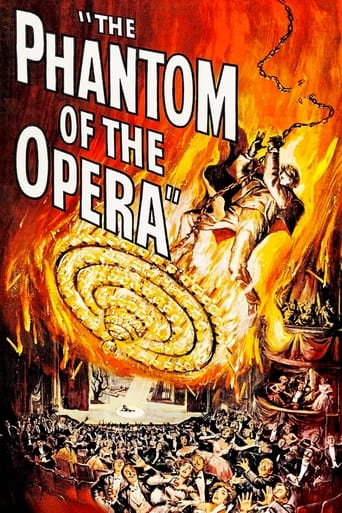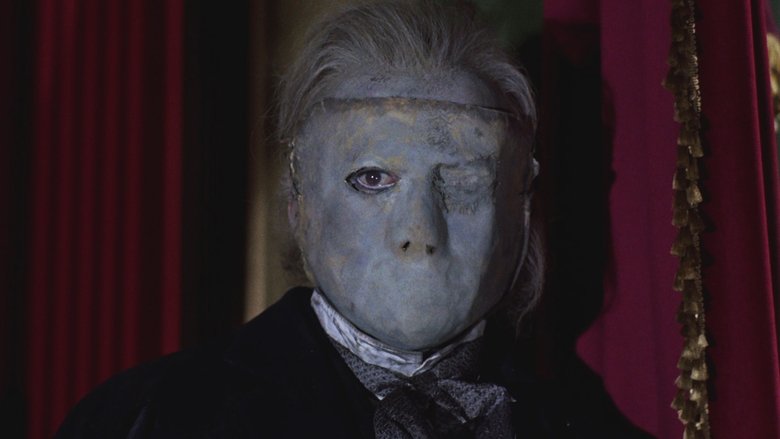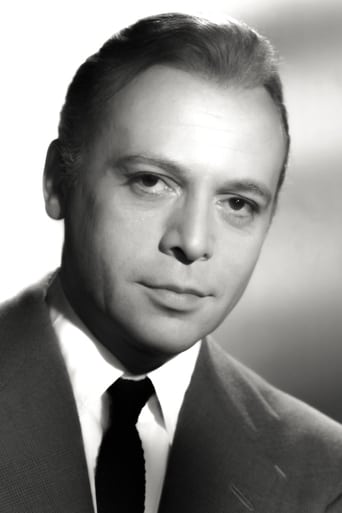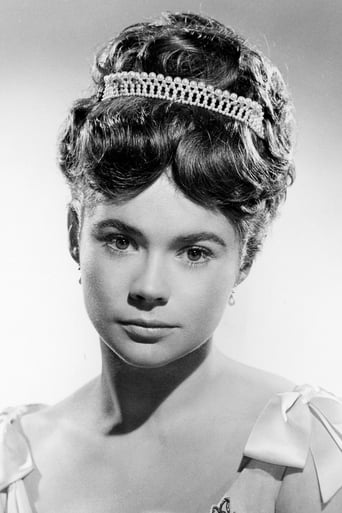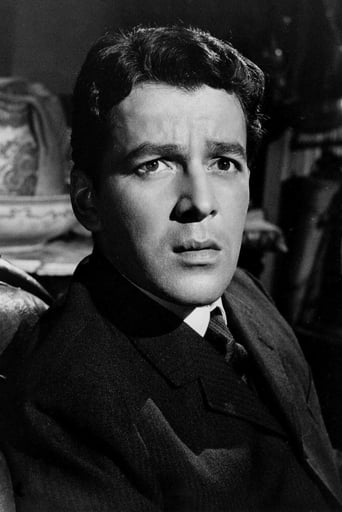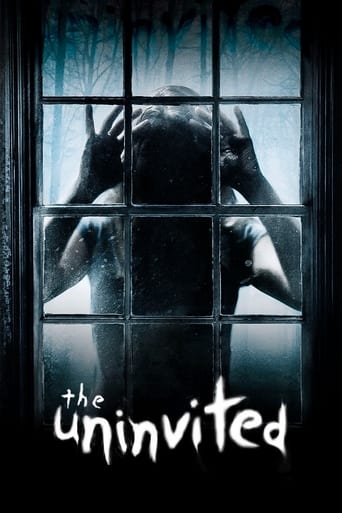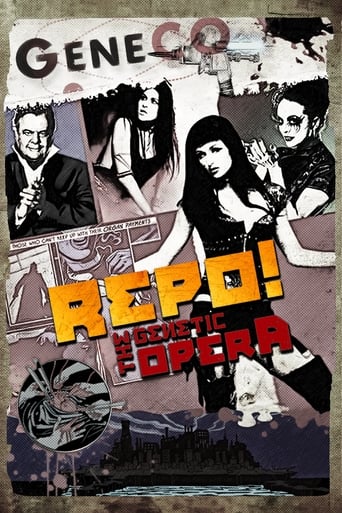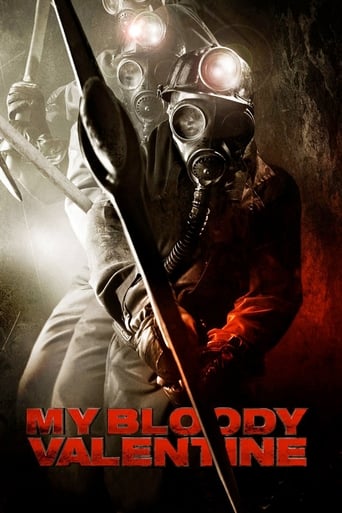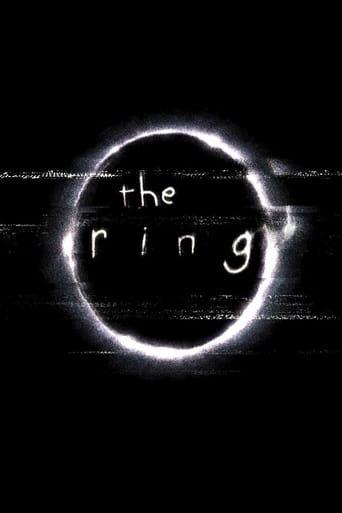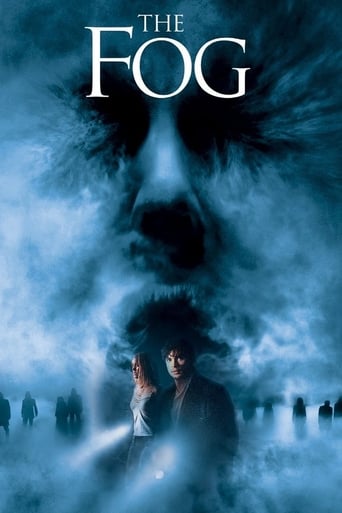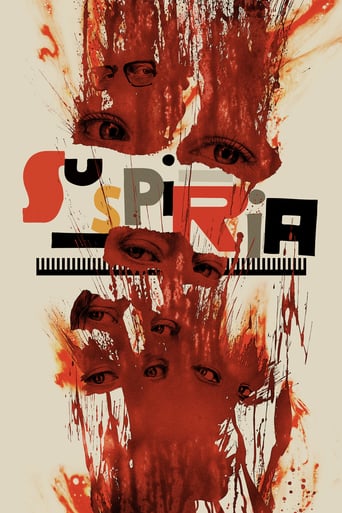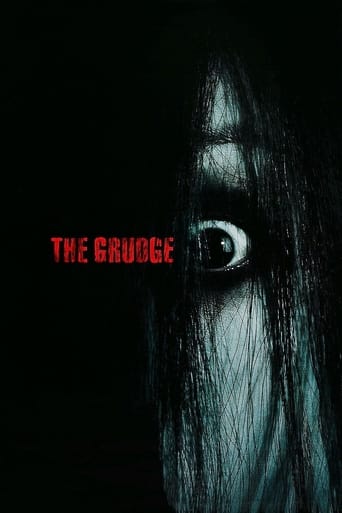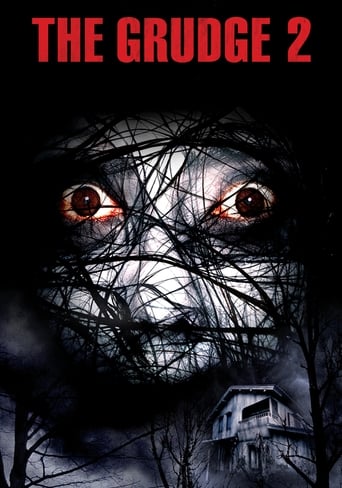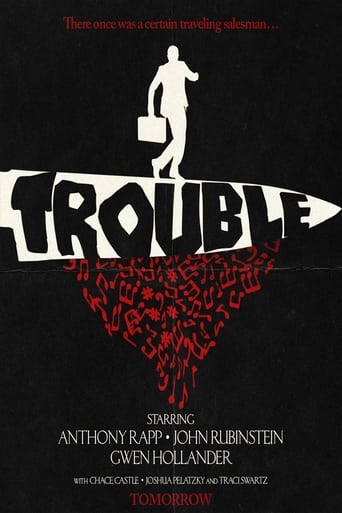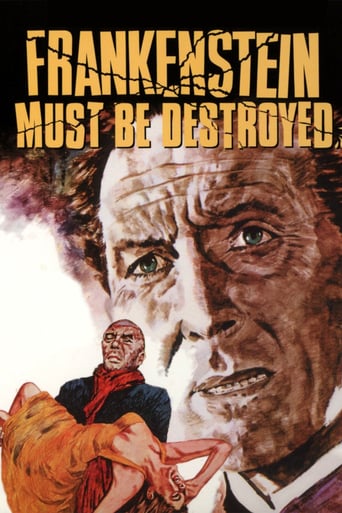The Phantom of the Opera (1962)
The corrupt Lord Ambrose D'Arcy steals the life's work of the poor musical Professor Petry. In an attempt to stop the printing of music with D'Arcy's name on it, Petry breaks into the printing office and accidentally starts a fire, leaving him severely disfigured. Years later, Petry returns to terrorize a London opera house that is about to perform one of his stolen operas.
Watch Trailer
Cast


Similar titles
Reviews
Great Film overall
I like movies that are aware of what they are selling... without [any] greater aspirations than to make people laugh and that's it.
The movie turns out to be a little better than the average. Starting from a romantic formula often seen in the cinema, it ends in the most predictable (and somewhat bland) way.
All of these films share one commonality, that being a kind of emotional center that humanizes a cast of monsters.
THE PHANTOM OF THE OPERA is the Hammer Horror version of the famous Gaston Leroux story, starring Herbert Lom as the hideously disfigured murderer hiding beneath a Parisian opera house and seeking revenge on those responsible for his predicament. This one's directed by Terence Fisher and was a flop on release, meaning that Fisher didn't get to work again for Hammer for a couple of years. The atmospheric and colourful visuals are the film's best aspect although the story is, it has to be said, a little flat.The problem lies with the writing rather than the direction. The viewer can never quite get excited about the big set-pieces and Hammer's spins on the original story are none too impressive. Lom's Phantom certainly looks the part but the story gives him very little to do other than haunt the scenery. Similarly, Heather Sears and Edward De Souza are fine as the protagonists, but they spend the film reacting rather than acting on their own behalf. Where this film shines are in the supporting roles, with a number of cameoing actors (Patrick Troughton, Miles Malleson, Michael Ripper) showing up to supply laughs and doing very well at it too. In addition, Michael Gough is a splendidly horrible villain. Compared to their adaptations of Dracula, THE CURSE OF FRANKENSTEIN and THE MUMMY, Hammer's THE PHANTOM OF THE OPERA is merely okay, although fans of the era and story should enjoy it anyway.
Have you ever heard of a movie where the title character him/herself is the weakest part of the film? Well, I haven't until I came across this version of Phantom of the Opera. However, before I get to that, let's talk about some good things. I really liked how the story was handled. I really like the mystery aspect of this film. Even though it was easy to put two and two together, it was really good and interesting build up to a really cool flashback scene towards the end of the film. I was also quite fond of the character Harry, who is basically the Raoul character of the story. While I think he could've used some flaws to make him more relatable, this version of the character really does him justice. He actually listens to Christine, he's always there for her, he does proactive things to help her and is just a really sweet guy. Even though he and Christine didn't know each other very long, I thought their romance was really believable, cute and sweet. They aren't the most fascinating characters but they have a believable relationship and were enough to keep me invested in them and the story. Now onto the main flaw with the movie: the Phantom himself. Now I won't say that everything about this character is bad. I actually quite liked his backstory, even if it was a bit too similar to the forties film, and how they handled revealing it. However, the character himself is extremely lacking. First off, his obsession with Christine comes completely out of nowhere. He saw her perform once and then all of a sudden starts stalking her and kidnaps her at one point. It's extremely rushed. Also, the Phantom does something completely unforgivable in my eyes, which I will spoil so navigate away if you don't want that. While the Phantom is forcing Christine to sing for him in his lair, she stops singing for a moment, thinking she can't do it and the Phantom slaps her across the face! I'm not joking, he really does that at the time mark 56:29 of the movie! Yes, the Phantom does many terrible things in every adaptation but that just crosses the line way too far. You know what's odd though? The Phantom and Christine don't have any sort of romantic feelings for each other in this version, which at first glance wasn't a very big loss for me since I usually hate that couple anyways. However, after watching the ending, I realized it actually was a big loss because the Phantom not only sacrifices his life to save hers but she cries at his death. I'm sorry but the only thing between these two was that he stalked her, forced her to do something she clearly didn't want to do and hit her when she didn't until Harry came along and told him to knock it off. If you wanted The Phantom's death to impact Christine, we should've seen what happened between the Phantom and Christine after the Phantom agreed to train her less harshly. I'll admit, the way his death scene was executed did draw a little emotion from me but that scene and the whole end of the movie in general was too rushed for the emotion to build and have any meaning. Overall, this is a good movie but not really for the Phantom himself.
Hammer's inevitable take on the classic Leroux tale has taken a critical pasting in recent times and did little to enhance Terence Fisher's career at the time. But it has aged nicely and stands revealed today as an interesting attempt to try something new in the Gothic genre before the clichés were set in stone by the decade's end. Nowawdays, its notorious for the fact that Cary Grant was reportedly lined up for the film. Whether he was to play the Phantom or the hero is left vague. I can see him as Harry Hunter charmingly wooing Christine in the cab, but Grant - accustomed to the sophisticatedly sexy banter of his Hitchcock films - might have baulked at Elder's generic on-the-nose dialogue. Edward De Souza acquits himself well in the role of the young hero - traditionally the most thankless role in any horror - and is a strong, charming central screen presence to hold your attention during the lengthy expository scenes. Heather Sears - accustomed to playing abused ingenues in films like ROOM AT THE TOP and SONS AND LOVERS makes an appealing Christine - she had to be more than the cleavage on legs of most Hammer starlets - and ideally cast as Joan of Arc in the opera.Herbert Lom's voice is an instrument of dramatic beauty and is shown off to its best advantage when the actor is masked. The concept of the Phantom is flawed by having his as a disfigured composer out for revenge instead of Lon Chaney's deformed freak from birth. Chaney's Erik had a crazed, monomaniacal stalkerish quality with his Christine whereas Petrie sees her only as the ideal vehicle for his artistic ambitions. At times, he acts like a protective Father-figure for the heroine. Christopher Lee would have been interesting in the role - being able to mime-act behind a mask and sing opera - but Lom brings gravity and presence to the part. Of the rest of the cast, Michael Gough has his best Hammer performance as the lecehrous, opportunistic Lord D'arcey whose type can clearly be seen in the singing and theatrical profession to this day - as well as certain further education establishments. It has received some criticism for its alleged cheapness but, actually, to these eyes, it looks more lavish than many Hammers with location filming at Wimbledon theatre giving a grand sense of scale and the bustling London Streets outside full of convincingly rendered extras.Its ironic that hammer's regular composer James Bernard never got to score this one film where music is so important. I wonder if Edwin Astley ever considered mounting "THE TRAGEDY OF JOAN OF ARC" professionally outside the confines of this film. The ending with Joan alone on stage before submitting herself to the flames is truly moving and we understand why Lom's Phantom sheds a tear.
Gaston Leroux's classic novel, "The Phantom of the Opera", is definitely one of the most famous and influential Gothic stories of horror and mystery ever written, and its main character, the Phantom, an icon of the Gothic horror literature. The novel's enormous popularity has resulted in many different adaptations, such as the 1925 silent film starring Lon Chaney, or more recently, the musical play by Andrew Lloyd Webber; works where the story of the mysterious figure that haunts the Palais Garnier has been explored in many different and interesting ways. Given the potential of the story, it's not a surprise that the legendary production company, Hammer Films, decided to make its own version of the story, written and produced by Anthony Hinds and under the direction of Hammer's best filmmaker Terence Fisher.Hammer's version offers many changes to Leroux's novel, the most noticeable one being that the movie is set in London instead of Paris. In this movie, producer Harry Hunter (Edward De Souza) and theater owner Lattimer (Thorley Walters) are working with famous composer Lord Ambrose d'Arcy (Michael Gough) to put d'Arcy's new opera, "Joan of Arc", on stage. However, they are facing trouble as a mysterious figure known only as "the Phantom" (Herbet Lom) is wrecking havoc by sabotaging the essays and committing a series of murders. The Phantom's actions make the lead singer of the opera to quit, but soon the producers find a replacement in the figure of Christine Charles (Heather Sears), a young singer with a beautiful voice. However, the Phantom is still there, and he gets a sudden dangerous interest in the new singer.Written by producer Anthony Hinds (as usual, under the pen name of John Elder), this version of the Phantom's story is a complete re-imagining of Leroux's story; but while different, it remains surprisingly faithful to the novel's essence by keeping true to the horror and mystery elements of the story. The Phantom here is a sympathetic and human figure, pretty much like the one presented in Universal's 1943 adaptation; however, Hinds makes his Phantom an anti-hero, and together with the addition of Lord d'Arcy as another "villian" gives the movie a very different tone to that previous version. As in most of his works, Hinds plays with the tragic aspects of horror, slowly taking the story to its shocking (albeit rushed) ending.Director Terence Fisher makes an excellent job at bringing this Phantom to life with his usual lavish look and with a nice touch of class and elegance. Hammer horror movies are known for being violent and gory, but this movie is different in the sense that focuses on atmosphere and mood rather than on scares. In fact, while the Phantom has a striking appearance (courtesy of Roy Ashton's excellent make-up), Fisher subtle and restrained take makes him less scary, using the haunting presence of his "monster" to increase its tragedy, instead of his monstrosity. While the budget was low, Fisher makes great use of his resources to create a wonderful moody film that keeps the novel's captivating atmosphere like few adaptations have done.Another element that makes "The Phantom of the Opera" an unusual Hammer film is the fact that few Hammer regulars appear in the cast. However, this by no means is a sign of unworthy performances. Herbert Lom is excellent as the Phantom, a difficult role as the mask in Fisher's version covers completely the actor's face, forcing him to use only his voice in his delivery. Lom is no Chaney of course, but easily ranks as the second best performance as the character. Edward De Souza's character is an equivalent of the novel's Raoul, but of course, with a big number of changes. De Souza's Harry Hunter is daring and witty, and he carries the film with dignity as the character in charge of solving the mystery of the Opera House. Heather Sears makes a believable Christine with her innocent looks and an excellent lip sync for the singing scenes. Finally, Michael Gough steals the movie, making a terrific performance as the villainous Lord d'Arcy; easily, the highlight of the movie.It's easy to see why this version of "The Phantom of the Opera" is not as celebrated as other Hammer films. The movie lacks some of the studio trademarks, as Hinds and Fisher decided to go for a different approach in this film. Also, the focus on atmosphere and mystery instead of direct horror make the film to look "different" or atypical, however, it's this restrained approach what in the end makes it one of the best (and ironically most faithful) adaptations of the story. At first sight it feels as if the Hammer magic was lost, but in the end, this is far from the worst that the legendary studio has done, and in all fairness, it's as good as their best films. Finally, a last minor quibble is that, like the 1943 film, it uses many overlong Opera scenes that while remarkably well done, add little to the plot and easily could had been replaced with a longer conclusion."The Phantom of the Opera" is not really a favorite among Hammer fans, but it's a really classy take on the iconic story of the disfigured genius that roams the Opera house. It's very different to other versions, but it keeps the spirit of Leroux's novel like no other film has done (with the exception of 1925 silent film). This underrated film really deserves a chance to be better known. 7/10

